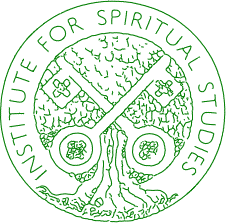

|
Seminar 3:
|
|
2006 is the 450th anniversary of the martyrdom of Archbishop Cranmer. We offer a full day looking at some aspects of this remarkable man, whose legacy of thought and language we use almost every time we worship. Whither 'Cranmer's Reformation'? An overview of the current state of the debateSince the 1980s, English Reformation historiography has been in a state of constant flux. Many of the assumptions about 'what happened' and why, have been brought into question. Some scholars have argued for the Reformations of religion in England being not a single process, but a series of politically-driven, locally-realized, 'Reformations from above', which only succeeded in converting a generally hostile population as late as the early seventeenth century. In the past few years this 'revisionist' argument has been challenged by scholars reasserting the role of popular Protestantism in the conversion of England. This paper will examine the changes in scholars' attitudes to the Cranmerian reforms under Henry VIII and Edward VI. Rev'd Dr Craig D'Alton is Assistant Priest at St Peter's, Eastern Hill, teaches Reformation History in the Melbourne College of Divinity, and is Fellow of the History Department at the University of Melbourne. His publications include articles on heresy policy in the reign of Henry VIII, and Reformation-era humanism.
Cranmer's Ecumenical LegacyThomas Cranmer's 'incomparable liturgy' had an influence well beyond his native Anglicanism. First, it became, along with the King James Bible, the mediator and model for all who used the English tongue, at least in church. The Oxford Dictionary of Quotations has 412 items, over 19 pages (though the majority are citations from Coverdale's memorable psalms). Like the Bible, it has moulded common English, not merely literary English. Secondly, it has influenced liturgical style in many other churches: directly, of the Methodists, through John Wesley (who abridged 1662 for their use), but also of the books of Common Order of Scottish Presbyterians vehemently opposed to the imposition of a Book of Common Prayer. Many who prayed ex tempore have also borrowed his mellifluous phrases. Cranmer's English has its echos in the liturgies of united churches in India and Africa, and of ecumenical services until our own day. The attempt to find a different liturgical English in our own time sparked vigorous debates in the 1960s and 70s, and still does. But Cranmer's influence is not contained to the linguistic: the content of later liturgies have been measured by his choices, by imitation or reaction. His particular theological synthesis of pre-Reformation European Catholicism and the dynamics of the contemporary English Reformation have also set the agenda for later liturgical writers and theologians. Rev'd Professor Robert Gribben, Fellow of Ormond College, Professor of Worship and Mission, United Faculty of Theology, University of Melbourne.
Other churches using CranmerSince 1980 a small number of parishes in the United States, comprising former members of the Episcopal Church of America, has been using a modified form of the Anglican Eucharistic Liturgy. This interesting liturgical phenomenon will be discussed in this paper, and some attention will be given to the historical implications involved in this venture, which has survived for some twenty-five years. Rev'd Dr Austin Cooper, OMI, retired Master of Catholic Theological College, East Melbourne, teacher, writer, mentor, member (like Professor Rober Gribben) of the Advisory Board of ISS.
|